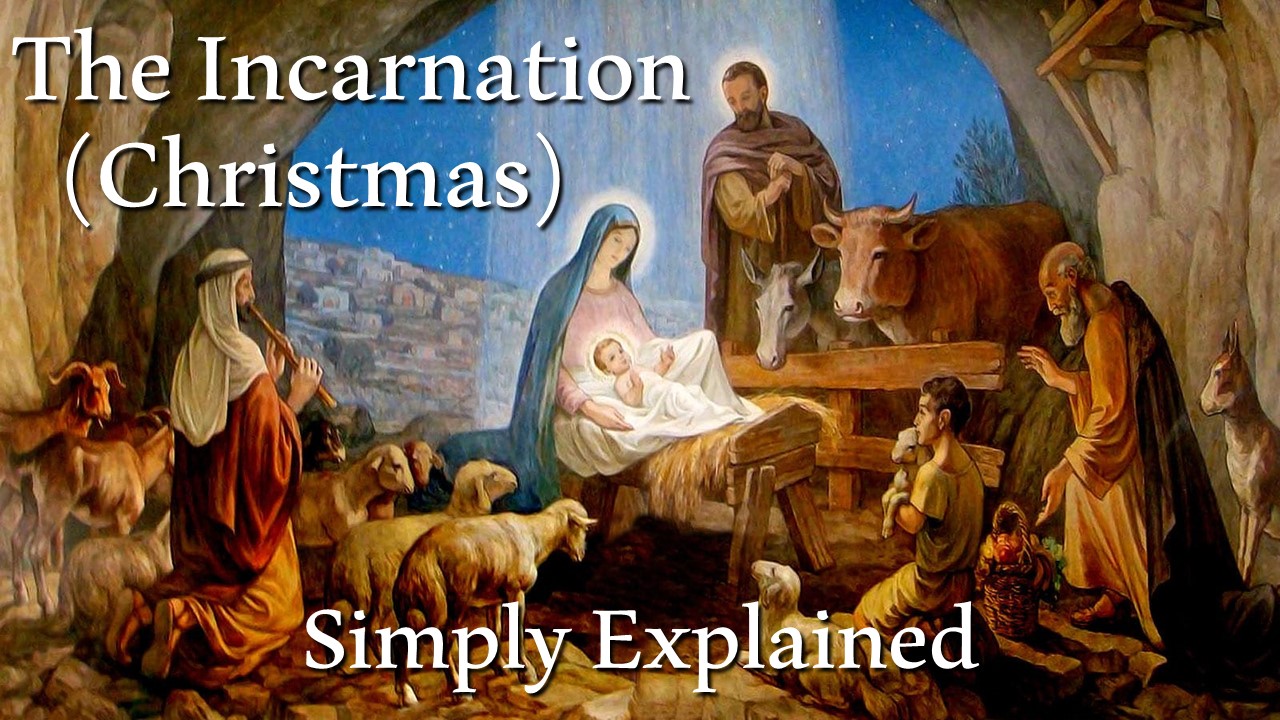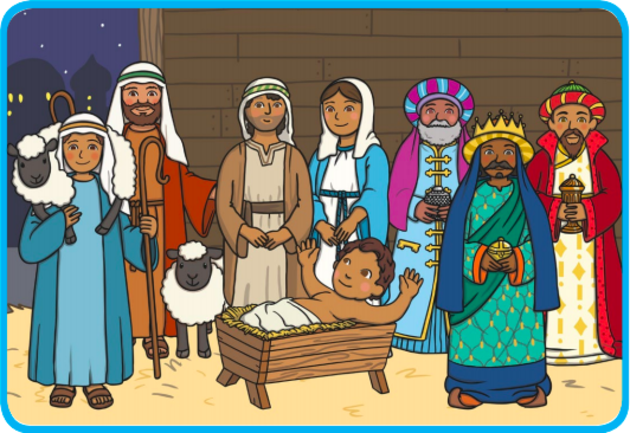The Incarnation: The Heart of Christmas in Christianity
Related Articles: The Incarnation: The Heart of Christmas in Christianity
Introduction
With great pleasure, we will explore the intriguing topic related to The Incarnation: The Heart of Christmas in Christianity. Let’s weave interesting information and offer fresh perspectives to the readers.
Table of Content
The Incarnation: The Heart of Christmas in Christianity

Christmas, celebrated annually on December 25th, holds a profound significance for Christians worldwide. It marks the birth of Jesus Christ, an event central to their faith and understood as the fulfillment of ancient prophecies and the culmination of God’s plan for humanity. This article delves into the rich tapestry of meaning woven into the celebration of Christmas, exploring its theological underpinnings, historical context, and enduring relevance.
The Incarnation: A Divine Revelation
The core of Christmas lies in the concept of the Incarnation, the belief that God, in the person of Jesus Christ, took on human flesh. This event, described in the Gospels of Matthew and Luke, is considered a pivotal moment in Christian history. It signifies God’s immeasurable love for humanity and his desire to enter into a personal relationship with his creation.
The Incarnation challenges the traditional separation between the divine and the human, demonstrating that God is not distant or unapproachable. Instead, he chose to become one of us, experiencing the joys and sorrows, the triumphs and failures, of human existence. This act of self-humiliation underscores the depth of God’s love and his willingness to bridge the gap between heaven and earth.
The Significance of Jesus’ Birth
The birth of Jesus is not simply a historical event; it is a theological event with profound implications. His birth marks the beginning of a new era, a time of redemption and reconciliation with God. Jesus, born into a world marked by sin and suffering, came to offer hope and salvation to all who believe in him.
His birth is seen as the fulfillment of ancient prophecies, particularly those found in the Hebrew Scriptures. Isaiah 7:14, for instance, speaks of a virgin giving birth to a son who will be called "Immanuel," meaning "God with us." This prophecy, among others, points to Jesus as the Messiah, the long-awaited deliverer promised to the Jewish people.
The Historical Context of Christmas
While the exact date of Jesus’ birth is unknown, the celebration of Christmas on December 25th likely originated in the 4th century. This date may have been chosen to coincide with the Roman festival of Saturnalia, a time of celebration and gift-giving. By adopting a pagan festival and imbuing it with Christian meaning, early Christians sought to evangelize and integrate their faith into the broader cultural landscape.
The celebration of Christmas has evolved over the centuries, with varying traditions and practices emerging in different parts of the world. However, the core message remains constant: the birth of Jesus Christ as a sign of God’s love and a promise of hope and salvation.
The Enduring Relevance of Christmas
Christmas continues to resonate with people across cultures and backgrounds, offering a timeless message of hope, peace, and joy. Its significance transcends religious boundaries, inspiring acts of kindness, generosity, and community.
The celebration of Christmas encourages reflection on the true meaning of life and the importance of human connection. It serves as a reminder that God is with us, even in the midst of life’s challenges, and that love, compassion, and forgiveness are the guiding principles of a fulfilling life.
FAQs about Christmas in Christianity:
Q: Why is Christmas celebrated on December 25th?
A: The exact date of Jesus’ birth is unknown. The celebration of Christmas on December 25th likely originated in the 4th century, possibly coinciding with the Roman festival of Saturnalia.
Q: What is the significance of the star of Bethlehem?
A: The star of Bethlehem, mentioned in the Gospel of Matthew, is often interpreted as a celestial sign announcing the birth of Jesus. It guided the wise men from the east to Bethlehem, where they worshipped the newborn king.
Q: What is the meaning of the nativity scene?
A: The nativity scene, depicting the birth of Jesus in a stable, is a traditional symbol of Christmas. It represents the humility of God, who chose to be born in a humble setting, and the significance of his birth for all humanity.
Q: What are some of the key Christmas traditions?
A: Christmas traditions vary widely across cultures and denominations. Some common traditions include:
- Gift-giving: Representing the gifts brought by the wise men to Jesus.
- Christmas carols: Traditional songs celebrating the birth of Jesus.
- Christmas trees: Decorated evergreen trees symbolizing eternal life.
- Christmas feasts: Festive meals enjoyed with family and friends.
- Church services: Special services held on Christmas Eve and Christmas Day.
Tips for Celebrating Christmas in a Meaningful Way:
- Reflect on the true meaning of Christmas: Beyond the festivities, consider the theological significance of the Incarnation and its implications for your life.
- Engage in acts of kindness and generosity: Share the spirit of Christmas by helping those in need and spreading joy to others.
- Spend quality time with loved ones: Use the Christmas season to connect with family and friends, creating memories that will last a lifetime.
- Participate in church services: Attend Christmas Eve or Christmas Day services to deepen your understanding of the holiday’s significance.
- Embrace the spirit of hope and peace: Let the message of Christmas inspire you to live a life of love, compassion, and reconciliation.
Conclusion
Christmas is a time for celebration, reflection, and renewal. It marks the birth of Jesus Christ, an event that transformed the course of human history and continues to inspire and guide Christians worldwide. By understanding the theological significance of Christmas and engaging in its traditions with a spirit of love and generosity, we can truly embrace the holiday’s timeless message of hope and peace.







Closure
Thus, we hope this article has provided valuable insights into The Incarnation: The Heart of Christmas in Christianity. We appreciate your attention to our article. See you in our next article!